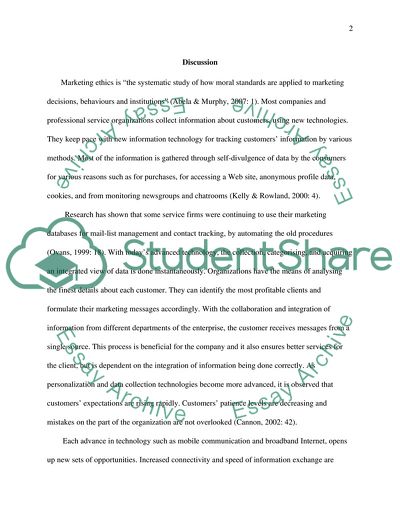Cite this document
(Whether the Use of Technology by Marketers to Gather Information about Essay, n.d.)
Whether the Use of Technology by Marketers to Gather Information about Essay. Retrieved from https://studentshare.org/marketing/1711518-marketing-q-how-ethical-or-unethical-is-the-use-of-technology-by-marketers-to-gather-information-about-customers
Whether the Use of Technology by Marketers to Gather Information about Essay. Retrieved from https://studentshare.org/marketing/1711518-marketing-q-how-ethical-or-unethical-is-the-use-of-technology-by-marketers-to-gather-information-about-customers
(Whether the Use of Technology by Marketers to Gather Information about Essay)
Whether the Use of Technology by Marketers to Gather Information about Essay. https://studentshare.org/marketing/1711518-marketing-q-how-ethical-or-unethical-is-the-use-of-technology-by-marketers-to-gather-information-about-customers.
Whether the Use of Technology by Marketers to Gather Information about Essay. https://studentshare.org/marketing/1711518-marketing-q-how-ethical-or-unethical-is-the-use-of-technology-by-marketers-to-gather-information-about-customers.
“Whether the Use of Technology by Marketers to Gather Information about Essay”, n.d. https://studentshare.org/marketing/1711518-marketing-q-how-ethical-or-unethical-is-the-use-of-technology-by-marketers-to-gather-information-about-customers.


